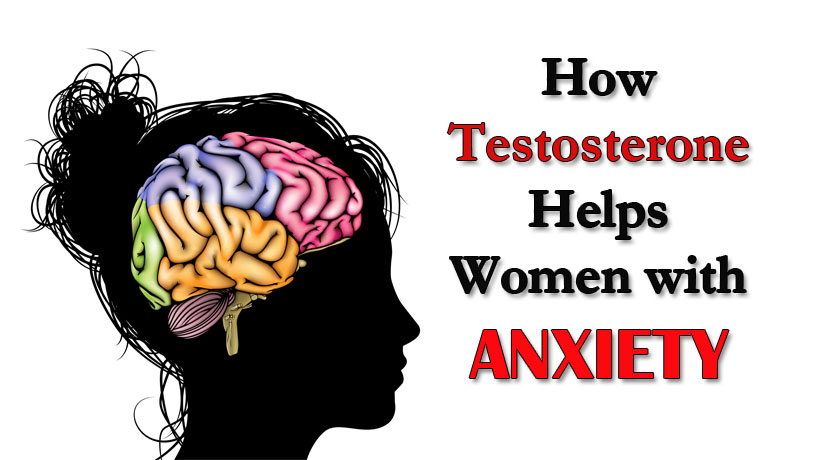Some anxiety is a part of life. But women with an anxiety disorder suffer from anxiety that interferes with their daily life and doesn’t easily go away, says the National Institute of Mental Health.
Women are more than twice as likely to develop an anxiety disorder in their lifetime, according to the nonprofit Anxiety and Depression Association of America. Since women have a higher probability, scientists are exploring why men seem to be more protected from it. According to research, a male hormone might be the key to helping women treat anxiety.
Why women are more likely to have anxiety
Although women produce a small portion of this hormone, testosterone is considered a “male hormone” because men produce much more of it to help with male reproductive functions and muscular mass and strength, says the National Institute of Health.
Luckily for men, testosterone appears to help protect against anxiety. According to Anxiety Canada, a resource site for the disorder, testosterone boosts two brain chemicals that are found to be low in anxious people. Testosterone also reduces the activity of the amygdala, the part of the brain that works overtime during periods of anxiety. Lastly, testosterone can modify the release of the stress hormone cortisol.
Additionally, women may have an increased chance of anxiety because of hormonal changes in their menstrual cycle, according to the Office on Women’s Health (OWH) from the U.S. Department of Health & Human Services. The OWH also lists traumatic events as a cause of anxiety, including abuse, attacks, or sexual assault.
What researchers are doing now
Knowing what they know about the beneficial relationship between testosterone and anxiety, researchers from Florida State University suggest testosterone therapy may be effective, for both men and women. In a 2014 review in the journal Frontiers in Neuroendocrinology, researchers found that treatment with testosterone had similar effects as antianxiety and antidepressant medicine for the women.
“Given that women are more likely to experience mood disturbances during times of hormonal flux,” they write, “Testosterone may have protective benefits against anxiety and depression.”
In another study published in the Journal of Clinical Endocrinology and Metabolism, researchers gave doses of testosterone to men three times a day for 60 days and asked participants to fill in a questionnaire on their mood. Using a 7-point scale, they rated their anger, alertness, energy, sadness, and nervousness for a week at the beginning of the study and a week at the end. The data reported lower levels of anger, irritability, nervousness, and sadness and higher levels of energy after taking testosterone.
The authors of the Florida State University study say more research is needed on the effects of testosterone therapy for women, but so far, the research is promising.
Sources:
https://www.nimh.nih.gov/health/topics/anxiety-disorders/index.shtml
https://adaa.org/living-with-anxiety/women/facts
https://www.anxietycanada.com/resources/article/men-and-anxiety
https://www.nih.gov/news-events/nih-research-matters/understanding-how-testosterone-affects-men
https://www.womenshealth.gov/mental-health/mental-health-conditions/anxiety-disorders
https://www.ncbi.nlm.nih.gov/pubmed/24076484
https://ajp.psychiatryonline.org/doi/pdf/10.1176/appi.ajp.157.11.1884
https://www.anxietycanada.com/resources/article/men-and-anxiety
https://academic.oup.com/jcem/article/81/10/3578/2649928



